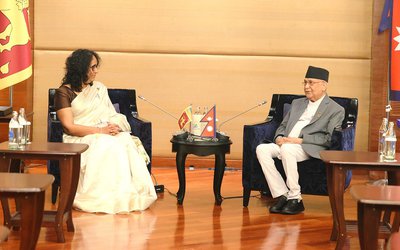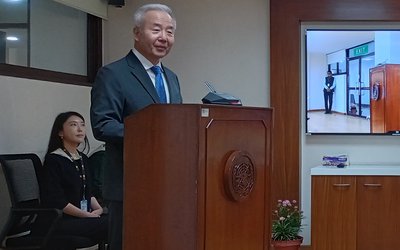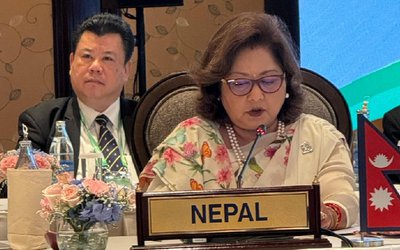
How do you look at the importance of the consultative meeting for the government?
ICPD is a global agenda. The 15 agenda of ICPD are very important for Nepal's overall population management. ICPD is a vehicle to link population and development. Population is one of the important components for Nepal's overall development. As all of us know, we cannot separate development and population. Nepal government has been giving a high priority to the population agenda. My participation in the meeting itself speaks volumes about its importance.
How valuable are ICPD's principles for us?
All the principles set by ICPD are important for Nepal's overall development. This is the reason Nepal is among the countries which endorsed the ICPD's principles soon after declaration. ICOMP and CDPS have done a great job by bringing all different stakeholders to share their views and common concern on ICPD. These kinds of workshop also help the government of Nepal to streamline its policies and programs. This is very important to know the views of the civil society and experts on reproductive health, family planning and reproductive rights. These issues are important agenda of ICPD. Infant mortality and maternal mortality are two important components for population management. Knowing the importance of family planning and its methods is also important. Similarly, the reproductive rights are another important issue. The discussions held during the two-day workshop were important for the government of Nepal to prepare its report for ICPD Beyond 2014.
How do you see the status of family planning in Nepal?
Nepal has been one of the pioneering countries in terms of family planning program for a long period of time. It was started since 1960s. Despite such a long experience, Nepalese still see family planning as a method for family control. That is not true. If we look at the current Total Fertility Rate and Population growth, the time seems to have been over to see the control mechanism. The time has come for population management and quality population. Since Nepal is almost at the replacement rate, the old policy needs to be revised now. We need to develop health skills and education for new population. Finally, there is the need to empower the population now.
What is your impression about the workshop?
These kinds of workshops are very important because they provide the government officials with the opportunity to interact with various stakeholders and to know their views. In this context, the Ministry of Health and Population would like to thank ICOMP. Population management is related to management of birth, death and movements of the people. Although there are also so many other agenda like marriage, urbanization and so on, birth and death management and movement of the people are key elements of population management. We discussed a lot on the birth management issue during the two days’ workshop.
What areas were discussed?
The workshop helped to identify the issues related to adolescence, reproductive health like abortion, delivery, child bearing and so on. For the last many years, Nepal government has also brought a number of policies for safe motherhood and family planning and reproductive rights. The government has already spent a huge amount of money to improve the health infrastructure of the country. Our experiences have shown that the expansion of the health services can play an important role in population management. There are still huge gaps in the distribution of family planning related methods. There is a huge unmet gap. Our census report revealed that over 2 million young people are currently out of the country. If they return in bulk, what would be the status of our population? The government is very concerned about this.
What is the priority of the government?
The government is now working to reduce the unmet need of family planning. The government has recently signed an agreement with DFID, under which, DFID will provide the much needed resources to expand the family planning method throughout the country. The government of Nepal is now working to formulate the population policy. We don't have a macro-policy to deal with a long term population program. Population is a cross cutting issue and it needs to be dealt with all other issues.
- IME GROUP: Expands Into Paper Industry
- Mar 24, 2025
- CPN UML: Instigated By India
- Mar 23, 2025
- ADB’S CHIEF ECONOMIST: Nepal Reduces Poverty
- Mar 11, 2025
- FM DR. DEUBA: A Successful Visit
- Mar 11, 2025
- MD GHISING: Target Of Personal Grudge
- Mar 09, 2025















